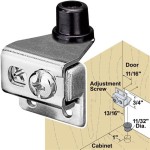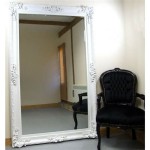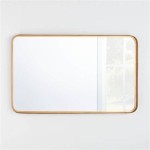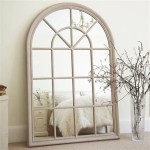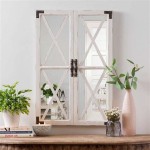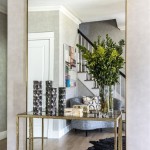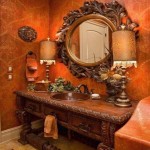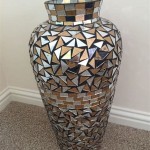Can You Hang a Mirror Above a Bed?
The question of whether to hang a mirror above a bed is a common one in interior design. While aesthetically pleasing in some cases, the practice carries with it a mix of practical considerations, cultural beliefs, and personal preferences that warrant careful examination before implementation.
From a purely practical standpoint, the primary concern is safety. A heavy object positioned above a bed presents a potential hazard. Should the mirror fall, due to improper installation or an unforeseen event like an earthquake, the consequences could be serious. This risk necessitates meticulous attention to mounting hardware and techniques. Opting for specialized mirror adhesive in addition to traditional hanging hardware can provide an extra layer of security. Regularly inspecting the mirror's mounting for any signs of loosening is also crucial.
The size and weight of the mirror are significant factors. Larger, heavier mirrors pose a greater risk. Selecting a lighter mirror, perhaps one with a thinner frame or made from lighter materials, can mitigate this risk. Additionally, ensuring the wall structure can adequately support the chosen mirror is paramount. Consulting a professional installer, especially for larger or heavier mirrors, is advisable.
Beyond the practical considerations, various cultural beliefs surround mirrors placed above beds. In Feng Shui, a traditional Chinese system of geomancy, hanging a mirror above the bed is generally discouraged. The belief is that mirrors can disrupt sleep by reflecting energy and creating a sense of restlessness. They are also thought to amplify worries and anxieties, leading to a less peaceful sleep environment. Some believe that mirrors can invite a third party into the relationship, causing disharmony.
However, these beliefs are not universally held. Some interpretations of Feng Shui suggest that if the mirror reflects something beautiful and calming, it can actually enhance the bedroom's energy. For example, a mirror reflecting a serene garden view might be considered positive. Ultimately, the interpretation and application of Feng Shui principles can vary depending on individual beliefs and consultations with practitioners.
Beyond Feng Shui, other cultural traditions hold differing views on mirrors and sleep. Some cultures believe mirrors can capture the soul during sleep, leading to bad dreams or restless nights. Others associate mirrors with negative energy or even portals to other realms. While these beliefs may not be scientifically based, they influence design choices for many individuals. Understanding and respecting these cultural perspectives are important when considering the placement of mirrors.
Personal preferences also play a significant role. Some individuals find the reflective surface of a mirror above their bed distracting or unsettling. The feeling of being watched, even by one's own reflection, can hinder relaxation and sleep. Others may be sensitive to light reflections from the mirror, particularly during the night or early morning.
Conversely, some individuals appreciate the aesthetic benefits of a mirror above the bed. A well-placed mirror can visually enlarge a room, creating a sense of spaciousness. It can also enhance the room's lighting, reflecting natural light during the day and lamplight in the evening. A decorative mirror can serve as a focal point, adding a touch of elegance or style to the bedroom.
The style of the mirror and the overall bedroom décor should be considered. A large, ornately framed mirror might complement a traditional or vintage style bedroom, while a minimalist frameless mirror might better suit a modern or contemporary aesthetic. The mirror's shape and size should be proportionate to the bed and the room's dimensions, creating a balanced and harmonious look.
From a design perspective, the mirror's placement relative to the bed is crucial. Ideally, the mirror should be securely hung at a height that prevents accidental contact. Leaving sufficient space between the top of the bed and the bottom of the mirror is recommended. The mirror should be centered above the bed, creating a symmetrical and visually pleasing arrangement.
Ultimately, the decision of whether or not to hang a mirror above a bed is a personal one. Weighing the practical safety considerations, cultural beliefs, and personal preferences is essential. Careful planning, proper installation techniques, and thoughtful consideration of the mirror's aesthetic impact within the overall bedroom design will contribute to a safe and harmonious space.
Consulting with a professional interior designer can provide valuable insights and guidance. They can offer expert advice on mirror selection, placement, and installation, ensuring both safety and aesthetic appeal. They can also help navigate the complexities of cultural beliefs and incorporate personal preferences into the design process.

Ten Things To Hang Above The Bed Centsational Style
4 Places You Shouldn T Place A Mirror In Bedroom And The 1 Should
4 Places You Shouldn T Place A Mirror In Bedroom And The 1 Should

Simple Ideas For Decorating Above A Bed Full Hearted Home
:max_bytes(150000):strip_icc()/178441745_383148099487612_1769129045153771530_n-2a1ba8c593f447aeac8a852dd456532a.jpg?strip=all)
Expert Ideas For Putting Mirrors In The Bedroom

Five No Fail Ways To Decorate Around Your Bed
Where To Hang A Mirror In Bedroom 5 Positions Elevate Your Sleeping Space

Should I Put A Mirror Above My Bed Answered Craftsonfire

46 Mirror Above Bed Ideas And Designs

20 Decor Ideas To Try Above Your Bed How Decorate The Space

